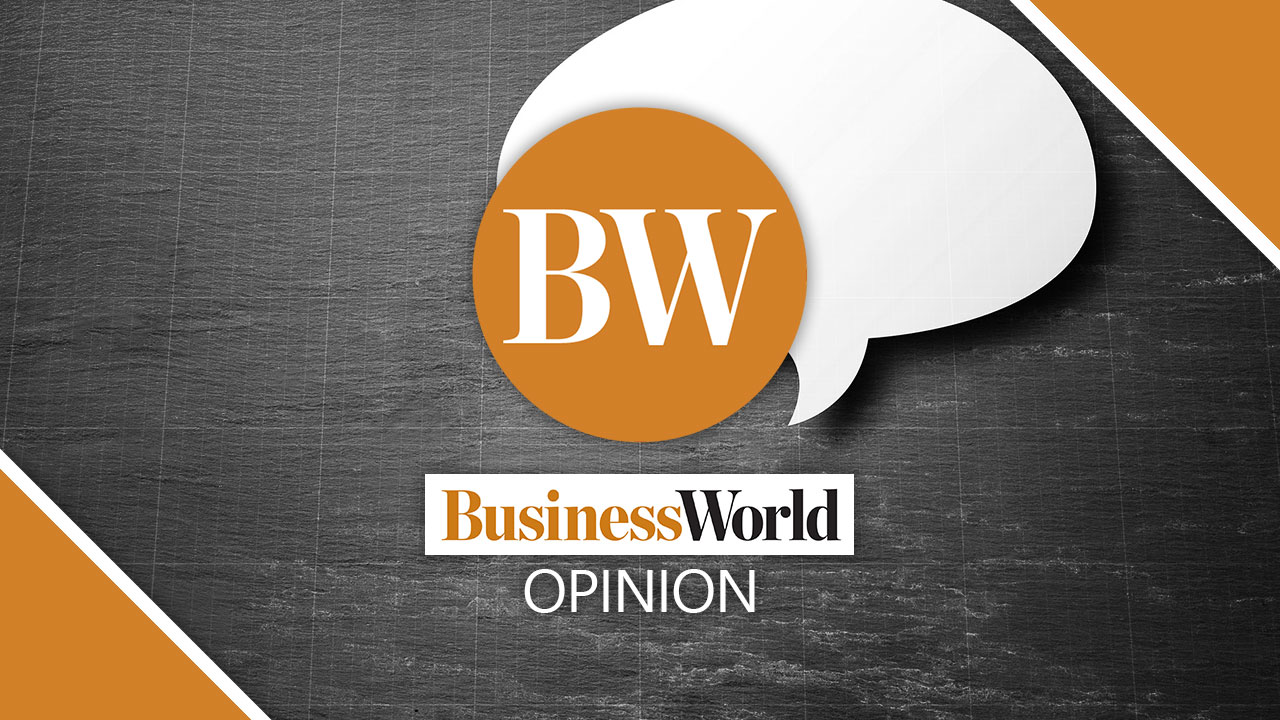
Corporate Watch
By Amelia H.C. Ylagan

Jesus said to Simon Peter, “Simon, son of John, do you love Me more than these?” He said to Him, “Yes, Lord; You know that I love You.”
(John 21:15)
Why does the Lord have to ask me three times if I loved Him, the embarrassed Peter might have muttered? And Peter remembered the words which Jesus had said, “Before a rooster crows, you will deny Me three times.” (Matthew 26:75). Three times too, Jesus found Peter and the apostles asleep when He had expressly asked them to stay awake and guard Him that night while He agonized and prayed — just before one of them, Judas Iscariot, betrayed Him to His captors.
“Let us not love with word or with tongue, but in deed and truth” (1 John 3:18).
That is the message of Lent and Easter for Christians — love is action. “By this the love of God was manifested in us, that God has sent His only begotten Son into the world so that we might live through Him.” (1 John 4:9). So is Love an act, not just a word for human love, in all its gradations and radiations.
Through two seasons of Lent and Easter under the unabating scourging of the COVID-19 pandemic, the message of Christian love for God and for one another is clear in theology but can be muddled in practicum. Of course, the restrictive isolation under quarantine is conducive to introspective examination of conscience and contrition. The very real fear of viral infection and possibly passing from this life to the next urges repentance for whatever lapses might be humbly acknowledged — for “the dread of the loss of Heaven and the fear of Hell.”
And in diffident conversion, one can go overboard in loving and giving, at the chill of some voice crying out in the wilderness — “Repent!”
Notice how easy it is now to append “Love you,” or “Labyu” in the vernacular, to almost anything posted on Viber or Facebook via the hypnotic internet, in the claustrophobic confinement to quarters. Has “love you” insinuated its way into social media communications because the ubiquitous “beso-beso” (“kiss-kiss,” the two cheek kisses of greeting and leave-taking) of the pre-COVID reality is now forbidden because of the safety rules in place to curb the coronavirus spread? “Love” and “Like” icons and GIFs, inspirational mini-posters, pass-around prayers, true and fake news are generously forwarded and sometimes go full circle back to the original sender. Pop-up birthday reminders for forgotten contacts in the directories of one’s gadgets bring lost friends together — how sweet! Love you!
But as in the gospel, love must be proven by action. A convenient excuse, this COVID-19 quarantine is, to postpone giving on time, real time proof of all those carefree “Love-yous” posted. After COVID, would there be time and capacity, for example, to respond to the physical, emotional, and spiritual calls of friendship and of love? When the hurly-burly of the day-to-day in the New Normal is grinding away, personal presence and time shared would be the active profession of one’s love with one another. A friend in need is a friend indeed. How could the Apostles, Jesus Christ’s closest friends, have slept when He was in such danger? “Are you not the Galilean, the disciple of Jesus,” asked some in the blood-thirsty mob that cried “Crucify Him!” “No, I am not,” Peter said three times. Are we ready for the serious responsibility of another’s trust and confidence in the love we can so flippantly profess?
But Peter and the disciples soon realized and repented their betrayal of Jesus. And the God-Man Jesus forgave the betrayal in the Garden of Gethsemane and restored His absolute and encompassing trust and love in all men, as He did even when Adam and Eve first betrayed Him in the Garden of Eden. Peter, the simple, feisty fisherman from Galilee, was anointed leader (the first Pope) of the community (the Church) on Earth. “Follow Me” Jesus said to him and to all (Matthew 4:19).
The sociological aspect of Love urges that it manifests and thrives in a community. Love is about relationships of trust and confidence. It is the moral fiber that weaves together individual concerns into the common good. It is born in the nucleus of the family, and grows centripetally in enlarging circles of the community, the nation, the world. Pierre Teilhard de Chardin (1881–1955), the French Jesuit priest, mystic, and paleontologist, says “love is the most universal, the most tremendous and the most mysterious of the cosmic forces… Love is both human and divine. Divine love is the energy that brought the universe into being and binds it together. Human love is whatever energy we use to help divine love achieve its purpose…” (Chardin’s Human Energy).
Alas that the COVID-19 pandemic has forestalled Chardin’s vision of Love’s unstoppable free spin towards the utopian “Omega Point” of pure and complete harmony in the universal and cosmic community — for how can this happen in the seeming fragmentation and compartmentalization of societies into basic families and even the more basic individuals, in the lockdowns, quarantines, and limited social contacts dictated by the pandemic?
The sense of community has perceptively thinned, diluted by the tears and fears of physical and economic survival. The altruism of the leadership in communities may have been overruled in some by the perhaps unfair temptations to perpetuity in power — where autocracy can be justified by the necessary centralization of controls against the spread of the virus amid the opacity of options to end the dismal situation.
And the people are perhaps too distracted and diverted to exact accountability and responsibility from leaders. Attention is on this virus, and how to survive physically and economically through perhaps another year more (most probably many more years!) of anxious fear and actual lack and deprivation of many needs and wants, the decimation of status and wealth, the foregoing of some human rights. In the social isolation in the pandemic, there can be a dramatic loss of identity and quite surely, the desensitizing of the sense of community. Add to that the proliferation of fake news and manipulative propaganda, and the people cannot really know the truth and what is going on.
Can the wavering over whether or not to be vaccinated and the near-riot clamor for a yet-unendorsed and -untested alternative prophylaxis/treatment medicine be hard proof of a deeper distrust of the leadership, in a country that has terrifyingly plunged into having one of the fastest-increasing COVID-19 cases per day? Knowing how exuberantly our President has declared publicly “I love you Xi Jinping!,” why is there such a fear — even abhorrence — of the Chinese vaccine which Duterte was supposed to have been promised by the Chinese president? Amid the fanfare over its recent (delayed) arrival, the Sinovac vaccine was nevertheless one of the first, and the most widely used vaccine among healthcare workers (the first priority), and administered last week to selected individuals below 60 years of age with comorbidities. But there is no comprehensive COVID-19 control and eradication plan yet by the IATF (Inter-Agency Task Force) at this late date.
There is no sense of urgency.
“Do you love me?” The question has not been seriously asked of the leadership by a pathetically intimidated community. Many serious issues on good governance and ethics/basic principles have arisen in the past five years, and hot-and-cold reactions from the public, mostly in the hippy social media, have quieted down as the deteriorating COVID-19 situation shouted for attention. But remember that Jesus Christ had to ask His lead apostle Peter, “Do you love me? three times, to pound into his thick head that there are responsibilities to a bond of loving trust.
The national elections are coming soon, in May 2022. By your vote, choose well the candidates who by their exhibited integrity and sincerity will answer well the question, “Do you love me?”
Amelia H. C. Ylagan is a Doctor of Business Administration from the University of the Philippines.